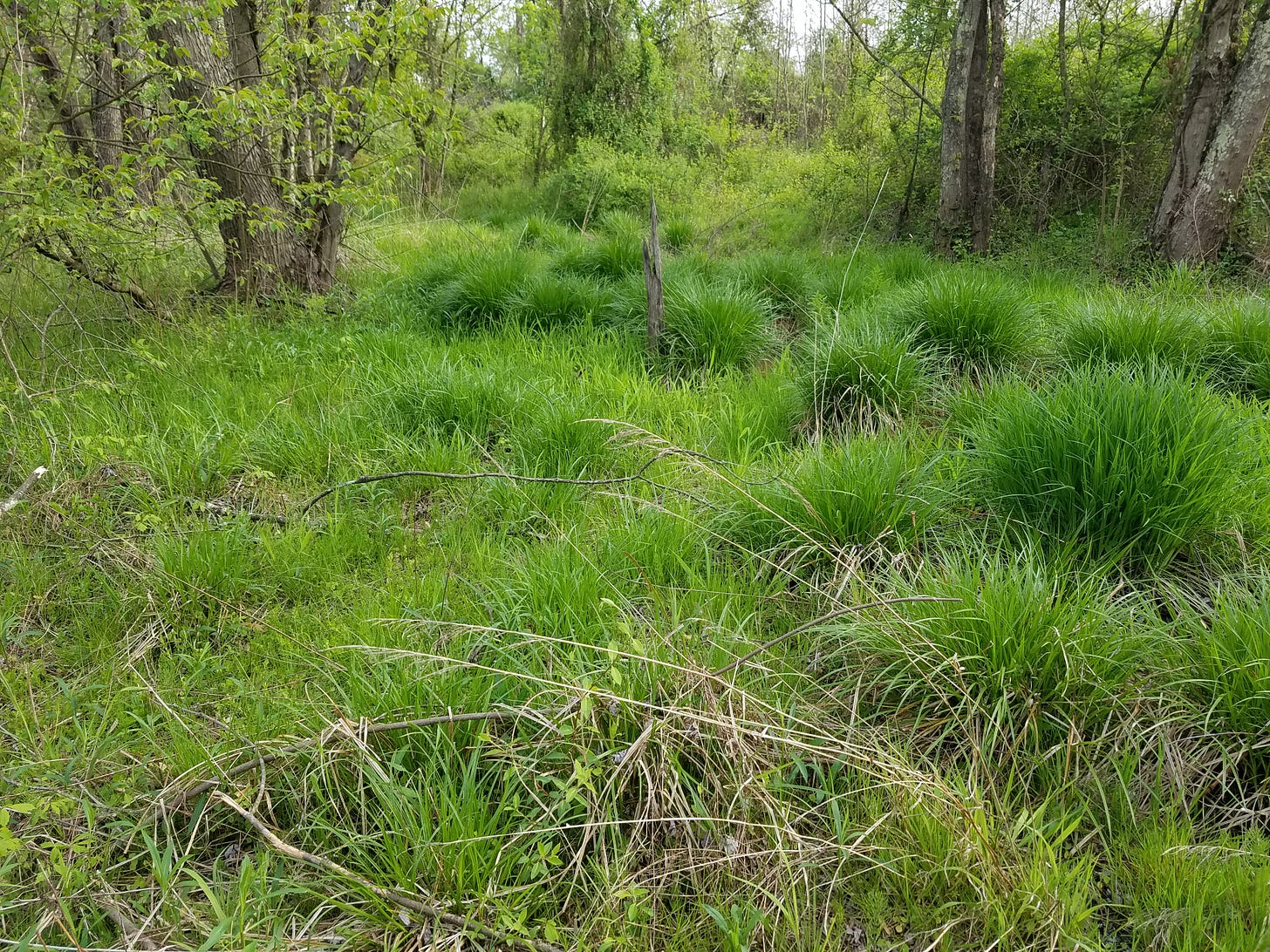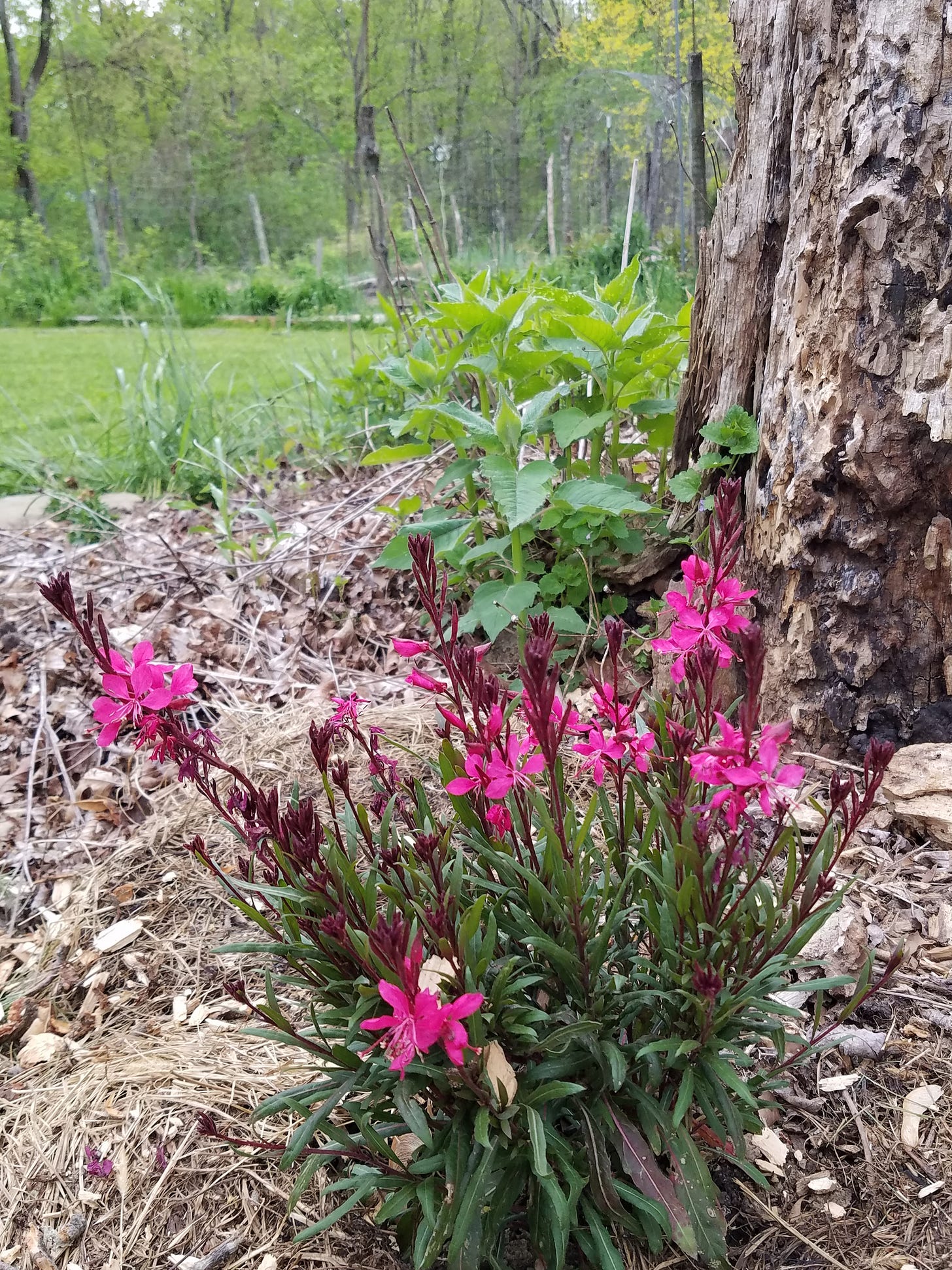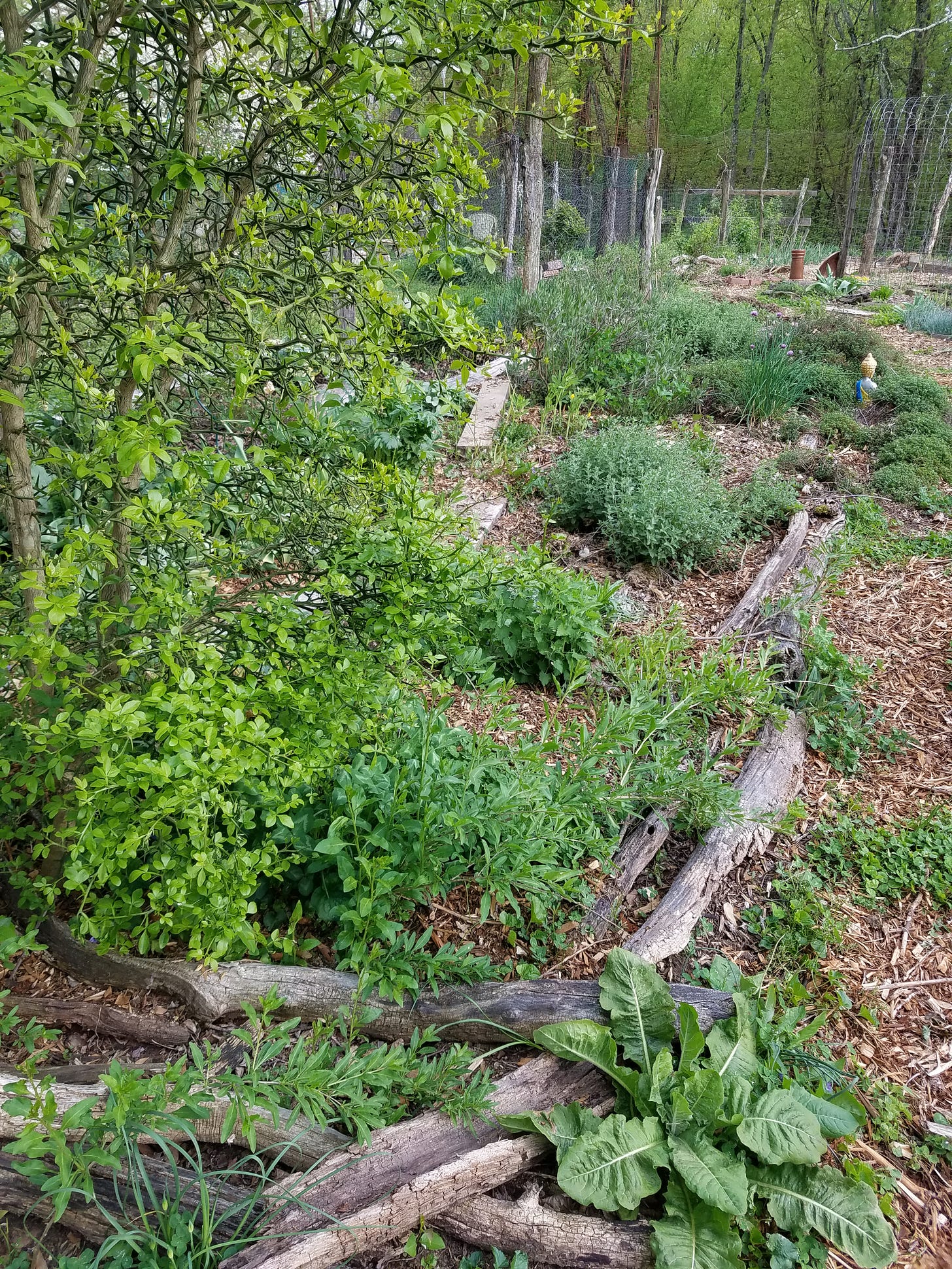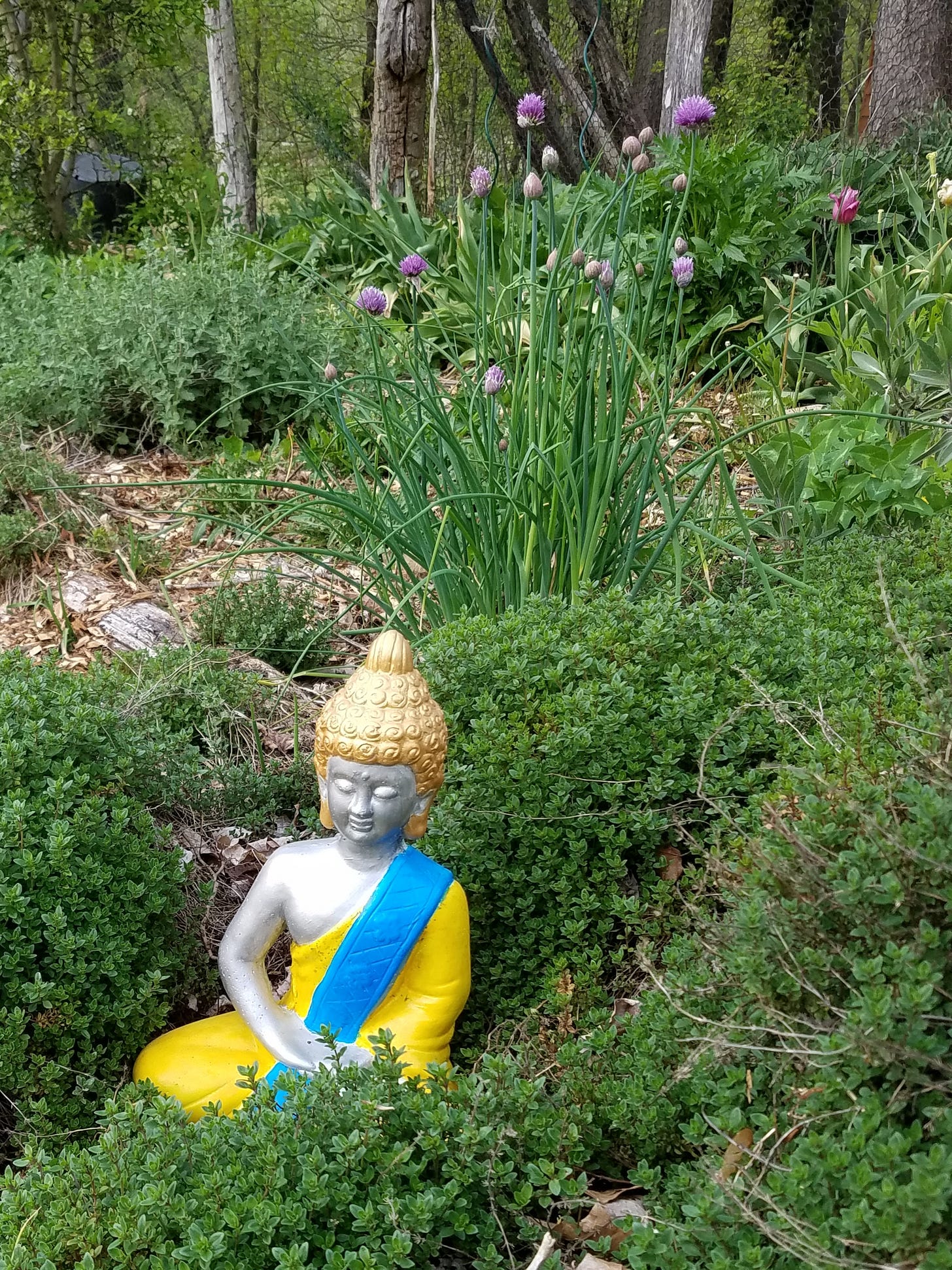Recently, at the prompt of Mary Hutto Fruchter, I began reading Braiding Sweetgrass by Robin Wall Kimmerer. I'm only a few chapters in, but already significant time has been spent on the topic of relationships. In one chapter, Kimmerer describes setting out to understand why goldenrod and asters grow and flower together. Long story, short: They work together for mutual benefit and for the ecosystem as a whole. She uses this floral pairing as a metaphor for how science and indigenous knowledge might, in a more perfect world, complement each other.
Kimmerer coins a term, metaphoray (metaphor and foray) for the writer's search for botanical metaphors. It's not really much of a search — they appear everywhere once you start looking. The superpower of the metaphor is bringing greater understanding of deeper truths by pointing out relationships. She uses a relationship between elements of the natural world to help the reader imagine how human culture might improve. What about an example from culture to illustrate how we might improve our relationship with nature?
Do you remember having kind and caring grade school teachers who, in an effort to engage students, told you that there were no stupid questions? Well, they were wrong. Perhaps you’ve heard the following. White dude: Why is it that I get in big trouble for using the n-word, when black people use the n-word all the time to refer to each other?
It's a stupid question because it's disingenuous. Unless the asker is truly dumb, he knows the answer, even if he might have trouble articulating it succinctly. It's all about relationship and intent. The white man who asks such a question does not have the same relationship that black men have to each other, and his intent in wanting to use such a word is to push boundaries, invade personal linguistic spaces, assert dominance, or some other equally repugnant goal. The reason black men use the word is no doubt completely different, and ultimately none of the white dude's business, and the reason it's acceptable has everything to do with relationships.
Here's another example: I've occasionally witnessed women become incensed when called sweetheart or honey by strangers. Such terms of endearment are often used in a patronizing manner which has sensitized us to their use. But what is the intent, and more importantly, what is the relationship? Is the word coming from a mansplainer or a little old lady who is speaking in loco grandparentis? The relationship between the speaker and the spoken to makes all the difference between an insult and a term of endearment.
Most of us automatically modify our language according to circumstance. Perhaps we are doing what sociologists call code switching, altering our accent or word choice to match the social situation. Or we might be toning down our swears because children are present. (What the fudge?) It's easy to grasp the concept because we're doing it all the time without much thought due to our intrinsic understanding of relationships.
When it comes to functioning in the human realm, most of us easily use language to navigate the situations we encounter. However, there are outliers such as those on the autism spectrum whose trouble reading social cues creates difficulties. These folks often have to put a lot of thought into how they might interact with others, to the point of practicing beforehand or formulating rules to help them succeed. The complex web of communications at social gatherings can be nonsensical and overwhelming.
When it comes to interacting with nature, many people are like autists at a party. We don't understand the interactions because we're missing the clues that expose the relationships. We hear a language that we think we know, but our attempts to engage are stumbling and clumsy because we're missing the subtleties. At best, we resort to following a set of rules to make interaction possible. At worst, like the petulant white guy we try to forcefully appropriate the language in order to insert ourselves into the situation for our own purposes.
I think my metaphoray has yielded a useful analogy, but it's not perfect. People with ASD (autism spectrum disorder) have brains that differ in an important, but not well-understood way from those who are neurotypical, and this creates problems with social interaction. Humans aren't stymied in comprehending relationships in nature because of a neurological condition, but because we barely spend time in the natural world. We seek out rules for appropriate interactions with Mother Nature because we haven't taken the time to establish a relationship with her.
On the positive side, trying to learn a set of rules to follow in interactions with nature indicates a willingness to learn appropriate behavior. Kimmerer, a college professor, relates how when she asked her student to rate the relationship between humans and nature, the overwhelming response that “humans and nature are a bad mix.” She explains this result by the fact that the students have spent a few years learning about environmental problems caused by humans. We should all find the fact that young people believe in an innate and immutable tension between humans and nature very disturbing, as the rift between the two got us into our current mess.
Kimmerer's students aside, there are many people seeking to create or renew a relationship with the natural world, often within the context of gardening or farming. From rewilding and dealing with invasive species, to garden and property layout, to companion planting and guilds, we look to books, YouTube videos, and experts for the answers. While this search for knowledge is understandable, a first hand relationship with the land we plan to work with is crucial. With such a relationship we are less likely to force our way into a conversation we don't understand, or misinterpret what we find there. We're more likely to recognize gifts that come our way, and make appropriate decisions about changes to be made. The good news is that this relationship is available to anyone with access to the outdoors and a willingness to do the work. For tongue-in-cheek instructions on how to achieve such a relationship, check out the link below.









Thanks for the shout out. I’m so glad you are enjoying the book. I also really appreciate you sharing about your relationship with language. I am planning to do a post and maybe include some of Kimmerer’s writing on Mother’s Day. I have been thinking of you this week as I watch my lawn and dandelions grow. 😊
One of my favorite books! Enjoy the rest of it!